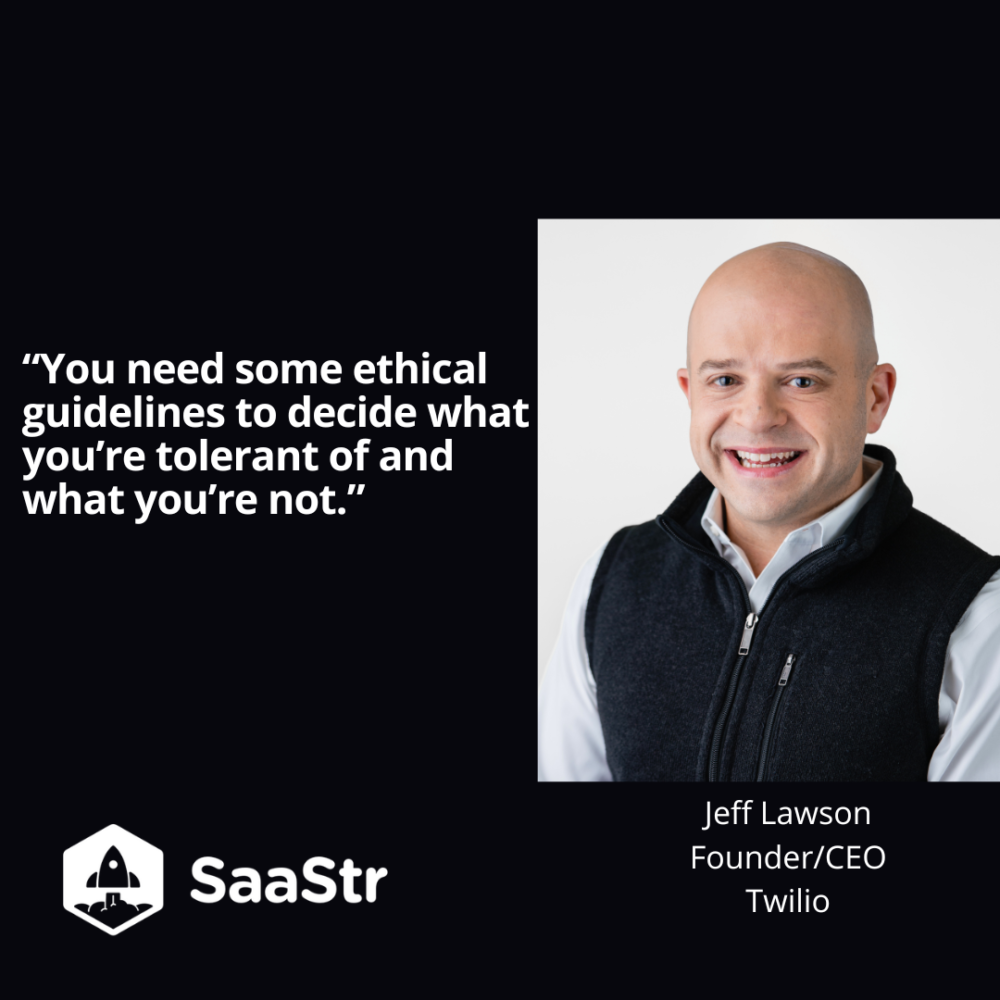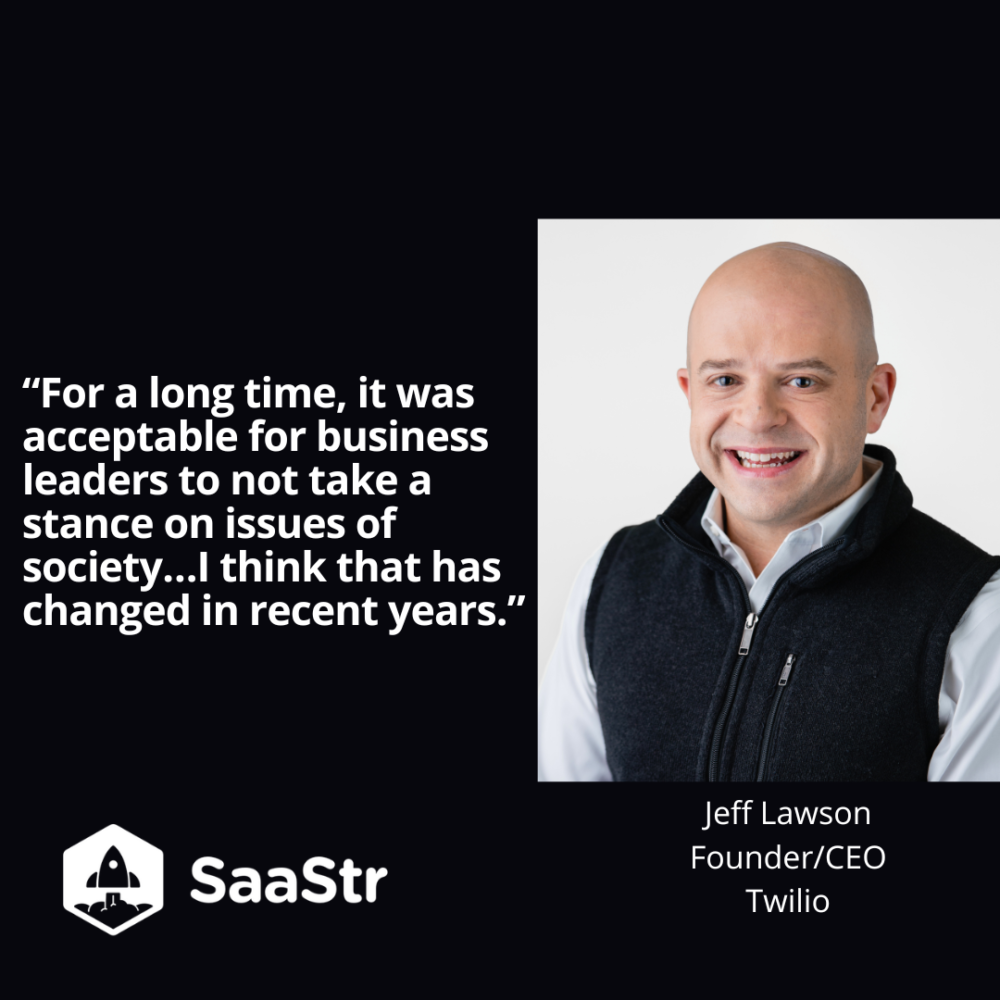So many things stay on SaaS leaders’ minds, like growing revenue, hiring strong teams, and making customers happy. Yet perhaps a less obvious piece of leadership is building an ethical framework for your company.
At 2019 SaaStr Annual, Anil Dash (CEO of Glitch before their recent acquisition by Fastly), and Jeff Lawson, CEO of Twilio, got together to discuss the importance of taking a stand on specific issues as a company and how clear moral positions can positively impact customers and employees.
We had the session up on the podcast, but not on SaaStr.com, and it was a good one we wanted to highlight in the run up to 2022 SaaStr Annual. So insights and podcast below.
Social Media, Blogging, & Using a Public Forum
Social media plays a fascinating and integral role in our society. It’s a forum for discussion, a public square for trading ideas, and a platform for company leaders to share thoughts on the industry, company news, and socio-political issues. But even in your early days as a founder, pay careful attention to what content and messages you share. As Dash says, “I was early on Twitter…I was blogging for 20 years, so it’s something interesting to me. After you do it for a while, you realize this stuff is going to be out there forever –– whatever you put out there. And this is interesting because it’s true for our companies, and it’s true for ourselves. So if this is going to be the persistent impression of us and what [everyone] evaluates us on, how do I feel about it over time?”

Picture yourself today and in the future, and ensure the content you post on public forums reflects accurately on your personal ethics and the ethical framework of your business.
Define Your Moral Guidelines and Social Stances
Historically, business leaders didn’t share their views on politics or injustices simply because society didn’t expect them to. That has undoubtedly shifted. As Lawson points out, “For a long time, it was acceptable for business leaders to not take a stance on issues of society…I think that has changed in recent years.”
Choosing to stay silent on important issues of the moment sends a powerful message to customers and employees alike of passive agreement or complicity. Dash explains ethical passivity this way: “It’s definitely a moment to raise the bar, and if you’re passive –– you know, an absence of leadership doesn’t mean no one will lead.”

To combat passivity, set up an ethical filter and bake that into your decision-making, hiring process, business practices, and product. There may be pushback, but Lawson emphasizes leadership clarity: “You need some ethical guidelines to decide what you’re tolerant of and what you’re not.”
This doesn’t mean your company must make a statement on every single issue or every current event. However, choosing the ones that resonate most deeply with your company ethos must be addressed. That’s why building a code of ethics for your business is critical.

Key Takeaways on How to Lead Ethically
- Use your digital and social media to serve as a platform to share your stances.
- You must confront moral ambiguity and make tough decisions as a leader, even if it will cost you revenue, a few angry customers, or a few employee resignations.
- Review how your product is used, and ensure that your terms of service prevent people from using it to commit morally questionable actions.



